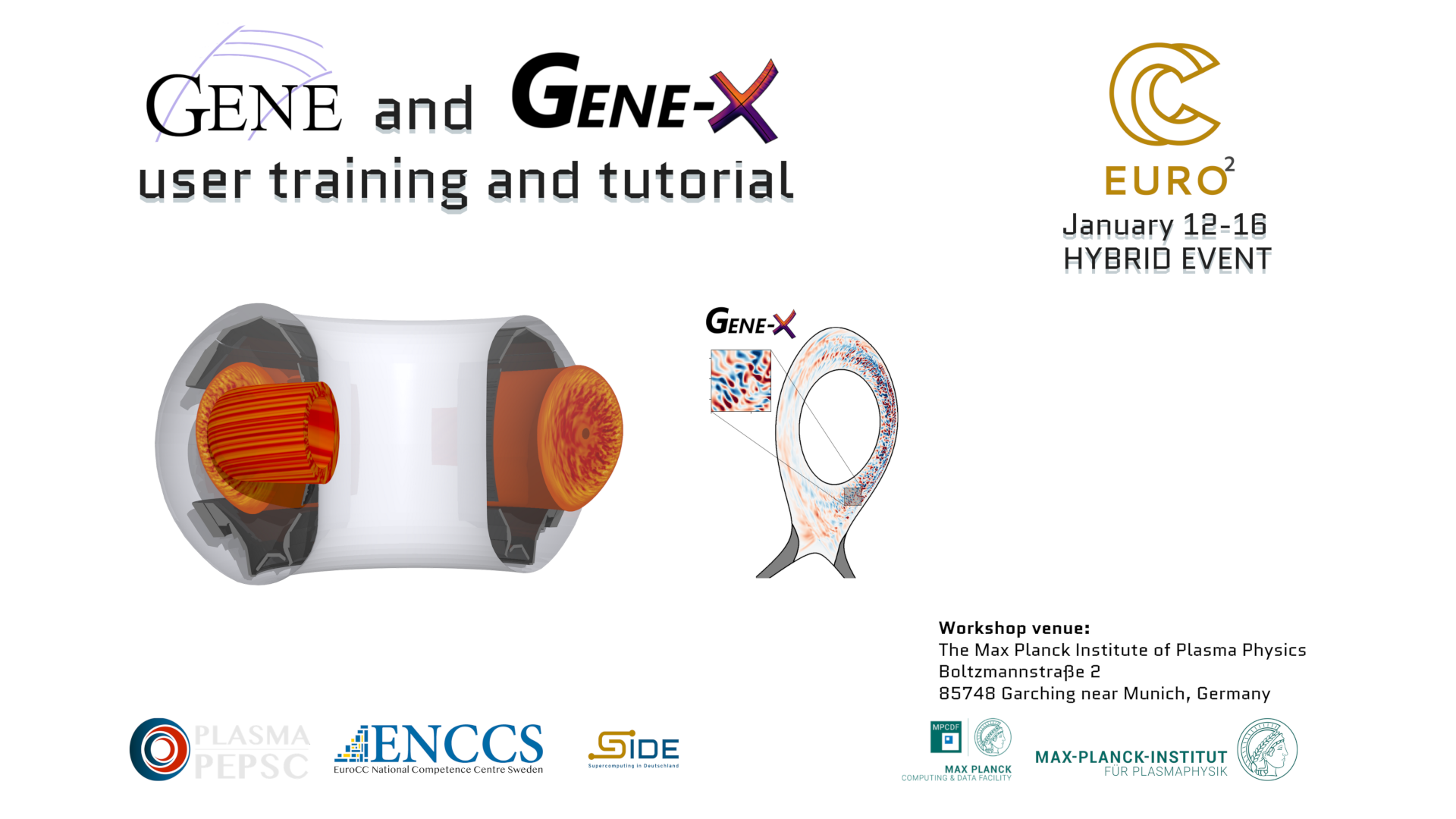
This training event offers an in-depth, hands-on introduction to GENE and GENE-X - two state-of-the-art Eulerian gyrokinetic plasma turbulence simulation codes widely used in the fusion research community. Both GENE and GENE-X are designed to solve the five-dimensional (5D) gyrokinetic equations that govern microturbulence in magnetized plasmas. Despite their shared physics foundation, the two codes are tailored for different modeling needs and computational strategies.
- GENE (Gyrokinetic Electromagnetic Numerical Experiment) is a delta-f Eulerian code that uses field-aligned coordinates, making it especially suitable for high-resolution studies of plasma turbulence in both the core and edge regions. It supports simulations at ion and electron gyroradius scales and can operate in both flux-tube and radial-annulus geometries. GENE is well-optimized for linear and nonlinear studies, offering advanced physics models and diagnostic tools.
- GENE-X, an extension of GENE, is a full-f code developed for simulations that cross the separatrix into the scrape-off layer (SOL) and beyond. It employs a flux-coordinate independent (FCI) grid approach, allowing for flexible mesh generation and better handling of complex magnetic geometries and boundary conditions.
Both codes are highly parallelized, capable of running efficiently on large-scale computing systems using CPU or GPU architectures. This allows users to perform computationally demanding simulations relevant to present and future fusion devices such as ITER and DEMO.
The event is addressed to plasma turbulence specialists and/or PhD/Master students, who want to learn (or improve their knowledge of) corresponding GENE/GENE-X simulations skills.
Instructors
- GENE: Dr. Tobias Goerler (Max Planck Institute of Plasma Physics (IPP))
- GENE-X: Dr. Philipp Ulbl (Max Planck Institute of Plasma Physics (IPP))
Learning outcomes
The training is addressed to plasma turbulence specialists and/or PhD/Master students, who want to learn (or improve their knowledge of) corresponding GENE/GENE-X simulations skills.
Pre-required logistics
- Participants are expected to have basic skills in Unix-based operating systems, including navigating terminals and using SSH, as well as some familiarity with text editors such as vi/emacs. Knowledge of compiling code is helpful but not strictly necessary.
- Additionally, participants should have a basic understanding of Python, as it is required for both preprocessing and post-processing simulation in- and output.
- To participate in the program, individuals preferably have their own account on a cluster or supercomputer where the GENE and/or GENE-X codes can be installed. It is recommended that participants contact the organizers beforehand to confirm that their cluster is suited for this workshop and to clarify any questions they may have. Finally, participants should have a small budget (few kCPUh) allocated on a cluster to perform code verification tests and hands-on submissions of small test jobs.
-- For EU residents it is possible to get a workshop account on Leonardo Booster at CINECA through ENCCS and SIDE. Please indicate the necessity in the registration form. A short basic introductory course can be attended online on Monday morning, where working on Leonardo Booster is introduced.